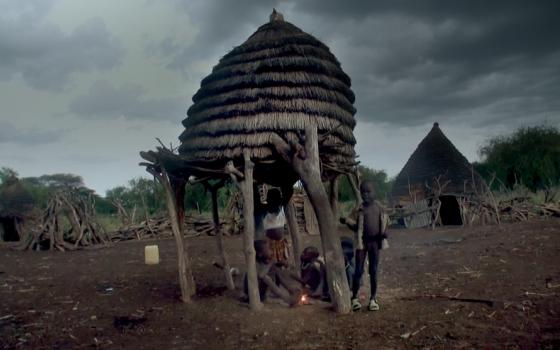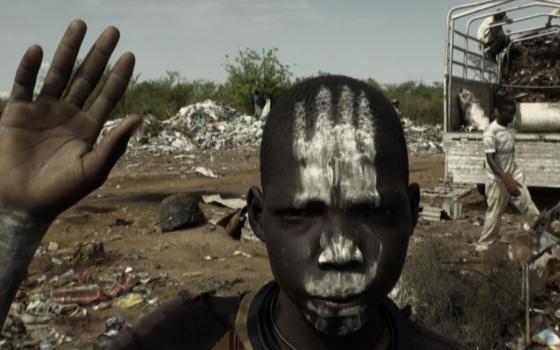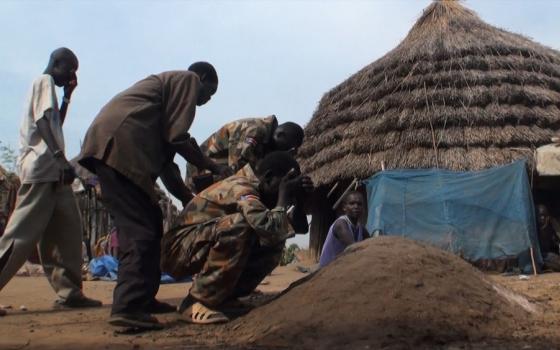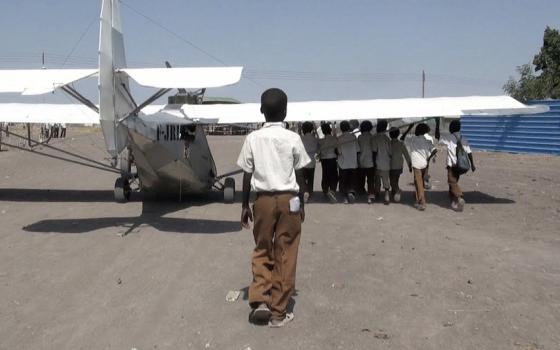International assignments for Global Sisters Report and NCR nearly always result in good memories.
First, there are the relationships formed with new colleagues, friends and sources — not to mention subjects for stories. In the case of an assignment last year in South Sudan, that meant getting to know such standout women as Sr. Anne Kiragu of Kenya, Sr. Amala Francis of India and Sr. Cathy Arata of the United States.
When you meet people like these and see them at work in the world, you see the living embodiment of hope.
Another type of remembrance includes the memories of place. And here, I hesitate to say all of these are good memories. South Sudan is a tough, thorny, violent country, and I heard many stories of terror, struggle and grief last year — not only among those in displacement camps, but also among clerics and religious who themselves experienced trauma in the face of violence.
So it was more than casual interest that drew me to a new documentary on South Sudan that is making the rounds on the independent film circuit, both in New York and elsewhere in the United States, including mid-sized cities like Denver and Seattle.
"We Come as Friends," which premiered last year at the Sundance Film Festival, is a travelogue that explores life in South Sudan during the moments before and after its 2011 independence from Sudan. "The result," wrote critic Ann Hornaday of The Washington Post, "is a visually stunning, morally disorienting polemic that has more in common with the experimental collages of Chris Marker and Jean-Luc Godard than the work of Michael Moore."
That's a critical point: Austrian director Hubert Sauper gives us very much a documentary of today in a film style shorn of much narration and the use of talking heads, as he did in an earlier film about Africa, the masterful "Darwin's Nightmare."
Sometimes I missed context and couldn't help but wonder if those seeing the film without any experience in South Sudan (or even Africa) would feel lost in this sea of images. I am still not sure a decontextualized approach — impressions over analysis — toward a subject so complex fully works. (And the various situations, histories and legacies related to Sudan and South Sudan are indeed enormously complex.)
Yet in many ways, "We Come as Friends" is a commanding film precisely because of its arresting visuals — poignant images that reveal a country trying to make sense of changing realities while outsiders, as the title suggests, make claims about innocent purposes that turn out to be far from innocent.
The film does not do quite enough in portraying the ongoing political tensions between various factions within the country. But "We Come as Friends" also leaves little doubt that South Sudan is a new hub for geopolitical competition, with China and the United States in particular vying for influence.
The film suggests that each country has unique ways to do that: China seems to make no secret of its quest for natural resources, though its presence often seems discreet, as if the Chinese would rather not let anyone know that they are there. The United States, true to form, takes a more visible — maybe even louder — multidimensional approach that is part "humanitarian," part business and even part religious.
Catholic sisters make no appearance in the film, but evangelical U.S. Christian missionaries do. By turns big-hearted and insensitive (not to mention out of place culturally), they seem like almost too-easy targets for Sauper's incisive and searching camera. Yet their "stakeout-in-the-frontier" mentality can come off as disturbing and arrogant.
Sauper does have a good eye for telling detail, as any knowing journalist will recognize. Hillary Clinton's on-camera statements on Africa, presumably while secretary of state and caught off of television screens, have a spooky poignancy here. Maybe she means well, yet the film suggests there is something of the creeping imperialist about her, too.
Perhaps the most poignant moments are when South Sudanese themselves speak about the realities of their country and the history and legacy of outsiders dominating their country. Haunting.
"We Come as Friends" is a poignant reminder of how cultural, political and economic dominance continues throughout the world — and with Africa as its epicenter.
[Chris Herlinger is a contributing writer to GSR and NCR. He has reported from South Sudan and Darfur, Sudan, as well as including Haiti, Afghanistan, Pakistan, Israel and the Occupied Territories, Kenya and Ethiopia and Liberia. He is the co-author, with Paul Jeffrey, of books on Haiti and Darfur, published by Seabury, and a third, on global hunger, will be released in this month.]




